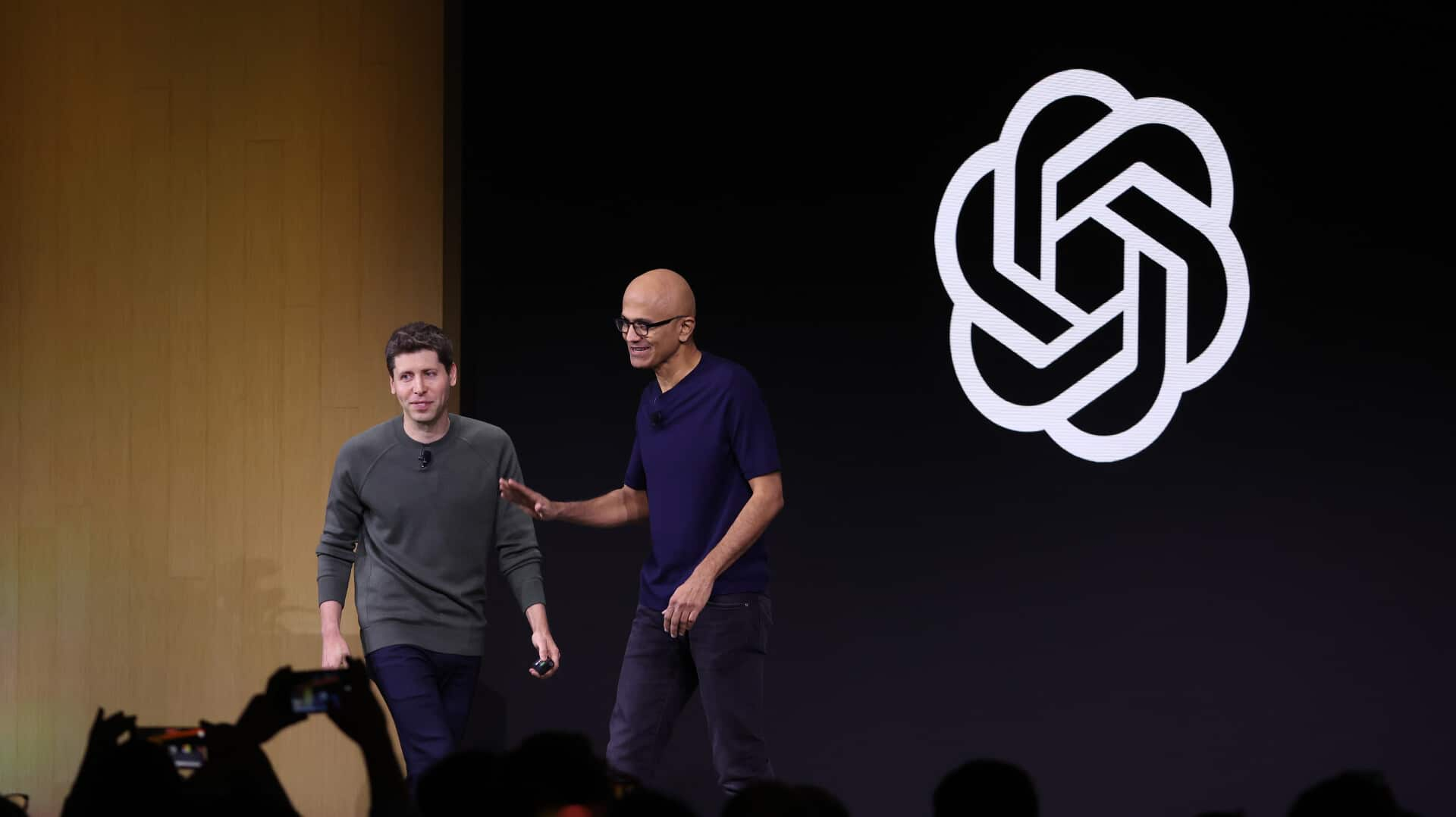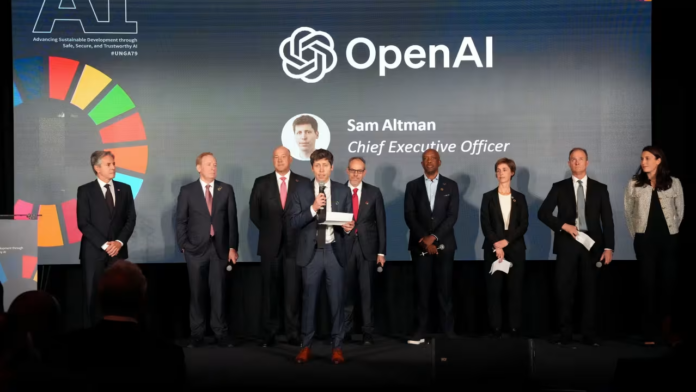In a potentially game-changing move, Microsoft is eyeing a major stake in OpenAI as the artificial intelligence company transitions from a non-profit research lab to a for-profit organization, according to a report by the Wall Street Journal (WSJ). This development could signal a seismic shift in the AI landscape, as one of the world’s leading technology giants deepens its involvement in the rapidly growing AI industry.
OpenAI, initially founded as a non-profit with the mission of ensuring that artificial general intelligence (AGI) benefits all of humanity, has increasingly leaned into commercial ventures in recent years. Microsoft’s interest in acquiring a substantial stake in OpenAI reflects the company’s ongoing strategy of dominating the AI space, which already includes a $1 billion investment in OpenAI in 2019, followed by deep integration of OpenAI’s technology into Microsoft’s products, including Azure cloud services and Office 365.
But as OpenAI transitions to a for-profit model, questions are being raised about what this means for the company’s original mission. Is OpenAI’s new structure a sign of mission drift, or a necessary evolution in its pursuit of AGI?

Microsoft’s Growing Bet on AI
Microsoft’s interest in OpenAI is not new. In 2019, Microsoft invested $1 billion in the AI company as part of a broader partnership aimed at accelerating OpenAI’s research while integrating its cutting-edge technology into Microsoft’s business services. The two companies have since collaborated extensively, with OpenAI’s GPT-3 model powering many of Microsoft’s services, including Azure Cognitive Services and even the company’s AI-powered coding assistant, GitHub Copilot.
Microsoft’s latest move suggests it is now looking to deepen its relationship with OpenAI further. According to the Wall Street Journal, Microsoft is in talks to acquire a more significant stake, though the exact size of the stake and the valuation of the company remain unclear. What’s evident is that Microsoft sees a huge upside in being closely aligned with one of the most advanced AI labs in the world.
The Shift to For-Profit: What’s Really Behind It?
OpenAI’s transformation into a for-profit company has drawn significant attention. Originally founded as a non-profit in 2015, OpenAI promised to focus on long-term research into AI safety. The company emphasized that it would not be beholden to shareholders and would prioritize ethical considerations over commercial gain.
However, in 2019, the company restructured to become a “capped-profit” company, which means investors and shareholders can earn a return, but it is limited to 100x their initial investment. The goal was to allow OpenAI to attract significant capital without losing its ethical footing.
Now, as OpenAI pivots even further into the commercial space, its alignment with Microsoft’s business goals has led some to question whether the company’s initial ethical mission could be compromised.
Critics worry that the transition to a for-profit model could lead OpenAI to prioritize short-term profits over the long-term safety concerns surrounding AGI, potentially putting the world at risk. In a sector as powerful and influential as AI, where the stakes are incredibly high, will this focus on commercial success have unintended consequences?
Potential Benefits of Microsoft’s Involvement
On the flip side, Microsoft’s increased stake in OpenAI could bring significant advantages to both companies. Microsoft has a proven track record of scaling technology platforms, and its vast resources could provide OpenAI with the capital and infrastructure it needs to continue pushing the boundaries of AI.
Microsoft also stands to gain from tighter integration of OpenAI’s capabilities into its vast product ecosystem. From cloud computing services on Azure to business tools like Microsoft Teams, AI technologies are poised to become integral to almost every facet of Microsoft’s offerings. With OpenAI’s innovations in natural language processing, machine learning, and AI ethics, Microsoft could further bolster its competitive position against other tech giants like Google, Amazon, and Facebook in the AI race.

What Does This Mean for AI Innovation?
This potential partnership could have far-reaching implications for the broader AI industry. With Microsoft’s backing, OpenAI could ramp up its research into AGI, potentially bringing the world closer to an era where machines surpass humans in intellectual capabilities. But along with these advancements come serious concerns about AI safety, ethics, and governance.
While OpenAI’s core mission is to develop AGI that benefits all of humanity, the shift to for-profit and the involvement of a major corporate entity like Microsoft could raise questions about who truly benefits from these developments. Will AI technology continue to be open and accessible, or will it be driven by the same profit motives that govern most of Silicon Valley?
What’s Next for OpenAI and Microsoft?
As OpenAI continues its march towards AGI, the company will face increasing pressure to balance commercial success with its ethical obligations. Microsoft’s deepening role will certainly shape OpenAI’s future direction, but whether it will be for the better or worse remains to be seen.
Investors, tech enthusiasts, and policymakers alike will be closely watching this partnership as it evolves, with many eager to see how OpenAI’s technological advancements will impact everything from business processes to societal structures. And as AI becomes more deeply woven into our daily lives, the need for transparency and accountability has never been more critical.

As we watch the partnership between Microsoft and OpenAI evolve, one thing is clear: the future of AI is no longer a distant possibility—it’s unfolding right before our eyes.

